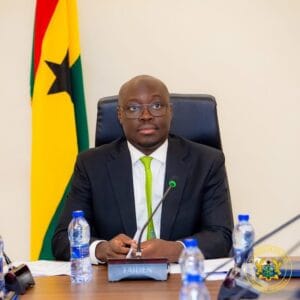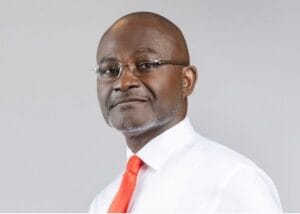
The Ministry of Finance has revealed import activities that align with actions identified as illicit financial flows. An assessment of import transactions spanning five years has revealed that $31 billion was transferred out of the country for goods that were never imported back into the country.
One prevalent method recognized for facilitating this kind of illicit financial flows is trade misinvoicing. This is another means by which businessmen and women launder money by false pretense.
The security agencies have assumed control of the case, and as stated by the Minister of Finance, Dr. Cassiel Ato Forson, measures will be implemented to guarantee the reimbursement of all taxes misappropriated from these financial transfers disguised as imports.
In addition, the Bank of Ghana (BoG) has been assigned the responsibility of imposing regulatory sanctions on all banks that colluded with the aforementioned business individuals to facilitate money laundering.
Dr. Ato Forson, while appearing on TV3’s Key Points on November 14, highlighted that many politicians are often labeled as corrupt. However, recent scandals and revelations have debunked such allegations, indicating that both locals and foreigners are deeply involved in corrupt practices.
During the presentation of the 2026 Budget Statement and Economic Policy in Parliament last Thursday, Dr. Ato Forson revealed that the IDF system, a customs tool overseen by the Ghana Revenue Authority (GRA) via the Integrated Customs Management System (ICUMS), uncovered significant discrepancies.
From April 2020 to March 2025, it was found that invoices processed for imports amounted to a staggering $81 billion—some denominated in Yuan, Pounds Sterling, Euros, and more. However, it was noted that $31 billion worth of these anticipated imports never actually arrived in Ghana.
“These importers are feeling the impact of foreign currency pressures on the cedi, which explains the significant depreciation of the currency. So, you’re saying you’re in the process of transferring funds. Essentially, it’s a form of money laundering, extracting funds from Ghana while evading the necessary tax obligations.
We’ve completed the work, observed the results, and submitted everything to the investigative agencies. Now, we’re moving forward with the tax process”, he said while appearing on TV3 to give further explanation to the budget statement he read in Parliament.
He stated that the erstwhile Akufo-Addo’s administration missed out on approximately GH¢11 billion in potential revenue due to misclassification and related issues, which they could have easily pursued and collected.
“There are times when we often express our frustrations with politicians, pointing fingers and placing blame, yet the issues at hand extend far beyond mere politics. As Ghanaian citizens, it is our collective responsibility to contribute to making this country a better place.”








